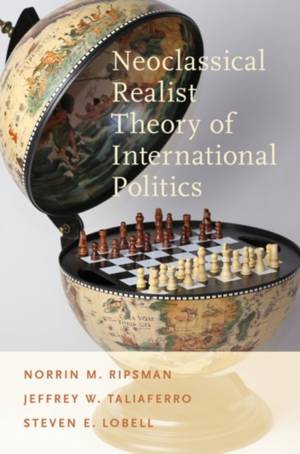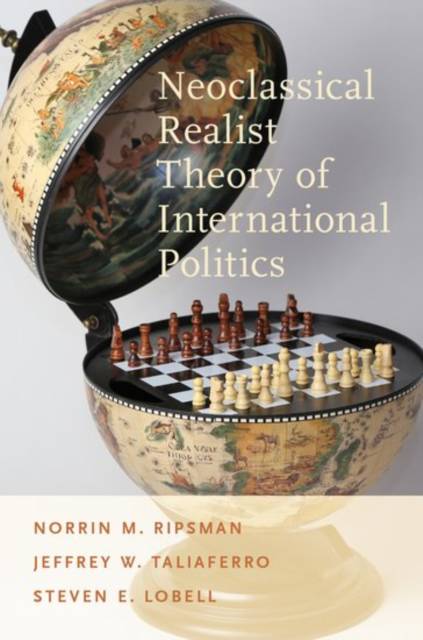
- Retrait gratuit dans votre magasin Club
- 7.000.000 titres dans notre catalogue
- Payer en toute sécurité
- Toujours un magasin près de chez vous
- Retrait gratuit dans votre magasin Club
- 7.000.000 titres dans notre catalogue
- Payer en toute sécurité
- Toujours un magasin près de chez vous
Neoclassical Realist Theory of International Politics
Norrin M Ripsman, Jeffrey W Taliaferro, Steven E Lobell
Livre broché | Anglais
82,45 €
+ 164 points
Description
Since Gideon Rose's 1998 review article in the journal World Politics and especially following the release of Lobell, Ripsman, and Taliaferro's 2009 edited volume Neoclassical Realism, the State, and Foreign Policy, neoclassical realism has emerged as major theoretical approach to the study of foreign policy on both sides of the Atlantic. Proponents of neoclassical realism claim that it is the logical extension of the Kenneth Waltz's structural realism into the realm of foreign policy. In Neoclassical Realist Theory of International Relations, Norrin M. Ripsman, Jeffrey W. Taliaferro, and Steven E. Lobell argue that neoclassical realism is far more than an extension of Waltz's structural realism or an effort to update the classical realism of Hans Morgenthau, E.H. Carr, and Henry Kissinger with the language of modern social science. Rejecting the artificial distinction that Waltz draws between theories of international politics and theories of foreign policy, the authors contend neoclassical realism can explain and predict phenomena ranging from short-term crisis-behavior, to foreign policy, to patterns of grand strategic adjustment by individual states up to long-term patterns of international outcomes. It is, therefore, a more powerful theory of international politics than structural realism. Yet it is also a more intuitively satisfying approach than liberal Innenpolitik theories or constructivism. The authors detail the variables and assumptions of neoclassical realist theory, address various aspects of theory construction and methodology, lay out the areas of convergence and sharp disagreement with other leading theoretical approaches -- liberalism, constructivism, analytic eclecticism, and foreign policy analysis (FPA) --- and demonstrate how neoclassical realist theory can be used to resolve longstanding puzzles and debates in international relations theory.
Spécifications
Parties prenantes
- Auteur(s) :
- Editeur:
Contenu
- Nombre de pages :
- 208
- Langue:
- Anglais
Caractéristiques
- EAN:
- 9780199899258
- Date de parution :
- 22-04-16
- Format:
- Livre broché
- Format numérique:
- Trade paperback (VS)
- Dimensions :
- 155 mm x 231 mm
- Poids :
- 299 g







